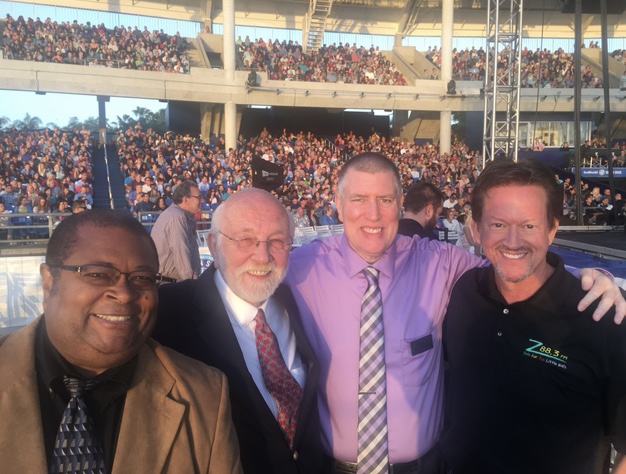Don’t worry! I’m not going to ask how many times you play “Easter Parade” by Judy Garland and Fred Astaire.
Easter, from a programming perspective, is not like Christmas in that there are 27 different versions of “Mary, did you Know?” that we can play.
But the principle is the same.

Familiarly IS preference.
One can’t prefer something one doesn’t know. If you don’t believe me then how Taco Bell can be voted America’s favorite Mexican food restaurant? (But that’s a Frost Advisory for another time).
While Christmas music programming may be more obvious, I would suggest we not forget the opportunity we face with Easter.
Both holidays have the potential to attract new listeners to your radio station, not unlike how an Easter service can draw newcomers to a church.
My friends at Z88.3 in Orlando have held an Easter sunrise service at Sea World for the past several decades. They don’t assume that those attending are avid Z listeners. But they understand that they could be… if the Z were to become familiar to them.
While Easter songs may not be the bridge of familiarity, Easter themes can be.
Forgiveness.
The worst of what has happened (Good Friday) transformed into the best of what has happened (Easter morning).
Sacrifice for others.
Life changing moments.
If familiarity really is preference, then what do we do with a format that is generally unfamiliar?
“You can’t fake familiarity. It doesn’t happen overnight. And when your new competitor is fighting only for attributes, they’re missing the larger point. Attributes don’t create familiarity, only familiarity does that. Attributes may be proxies for familiarity, but always remember that being familiar, dependable, trusted, is the real goal, not simply checking off a win on an attribute scorecard.”
Mark Ramsey
